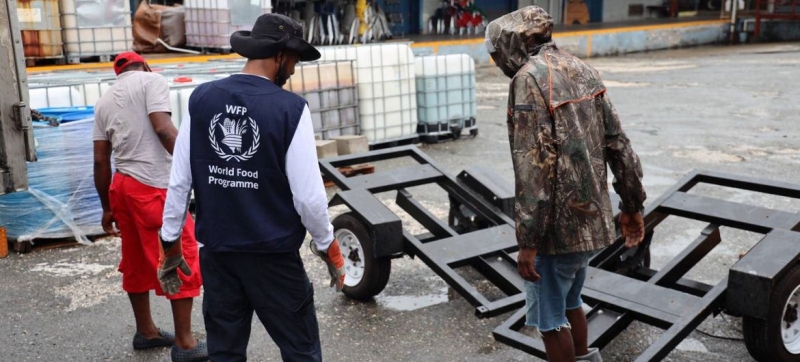
WFP staff are supporting Jamaica’s emergency services. Top news of the day | Tuesday: Gaza, Hurricane Melissa, migrant deaths, Afghanistan UN
The main news of the day in the UN and in the world: a report on “genocidal acts” in Gaza, the Caribbean region under the impact of Hurricane Melissa, the death of migrants off the coast of Libya, the consequences of communication restrictions in Afghanistan.
Report on Palestine
Presenting a new report by the UN Independent International Commission of Inquiry on the Occupied Palestinian Territory and Israel, its chair Navi Pillay said Israel committed “four genocidal acts” in Gaza and Israeli leaders “incited the commission of genocide.” Pillay described the situation in the enclave as “the most ruthless, sustained and widespread attack on the Palestinian people in history.” She called on UN Member States to ensure justice and accountability.
Hurricane Melissa
Residents of Jamaica and other countries in the Caribbean region were affected by the powerful Hurricane Melissa. In recent days, the UN and the Organization’s humanitarian partners have warned of a “critical” and “imminent” threat. The category five hurricane is the most powerful on the planet this year. The lives of a million people are at risk – including families still recovering from Hurricane Beryl, which hit the region 16 months ago. By pre-positioning supplies ahead of hurricane season, the World Food Program has mobilized relief efforts from Barbados.
Migrant Deaths
At the International Migration (IOM) expresses its condolences following the incident that occurred earlier today off the coast of Surmana, Libya. A wooden ship carrying migrants from several countries capsized due to strong waves: 64 people were rescued, 18 tragically died. IOM is working with local partners to ensure victims have access to medical and psychological support. The organization reiterated its call for strengthening regional cooperation, expanding safe and legal migration routes, and guaranteeing timely rescue operations. Afghanistan last month added to the hardships already facing the country’s population. This is stated in a report presented today by the UN Human Rights Office and the UN Assistance Mission in Afghanistan (UNAMA). The report’s authors described a number of violations associated with communication restrictions. These include lack of access to health care and emergency services, disruption of humanitarian operations, and the reinforcement of existing discriminatory restrictions against women and girls.
